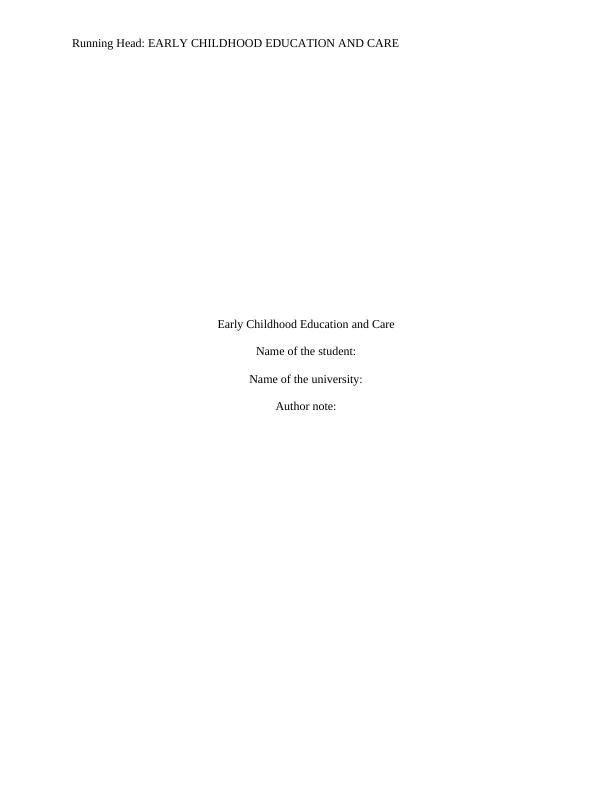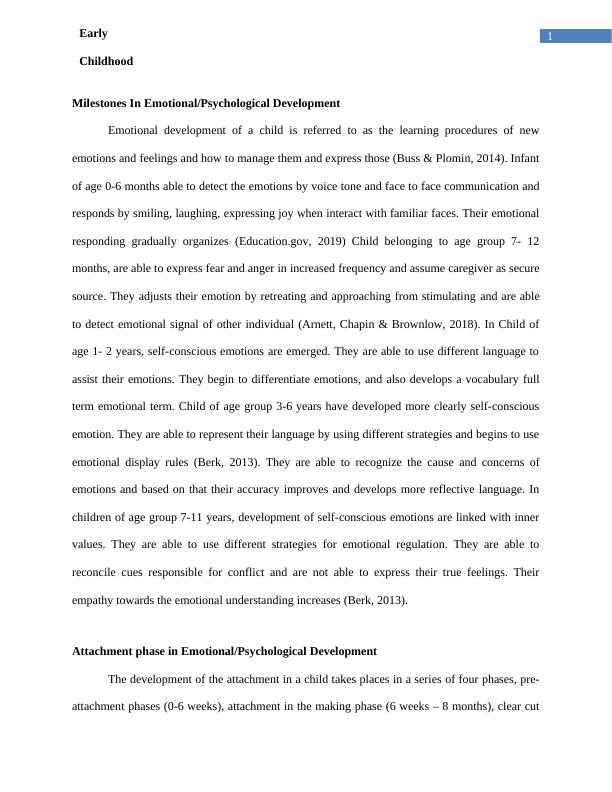Early Childhood Education and Care
5 Pages1030 Words56 Views
Added on 2023-01-17
About This Document
This document discusses the milestones and attachment phase in emotional/psychological development of early childhood education and care. It covers the different stages of emotional development and attachment, as well as the developmental milestones at different ages. The document provides valuable insights into the emotional and psychological growth of children in the early years.
Early Childhood Education and Care
Added on 2023-01-17
ShareRelated Documents
End of preview
Want to access all the pages? Upload your documents or become a member.
Emotional Development Data Base
|4
|864
|95
Essay on Psychological Perspective
|5
|1235
|55
Q&A on Early Childood Development
|6
|1385
|13
Early Childhood Development
|10
|2957
|413
The Developmental Domains
|7
|1585
|9
Comparison and Contrast between Bowlby Attachment Theory and Freud’s Psychosexual Theory of Development
|7
|1355
|461


